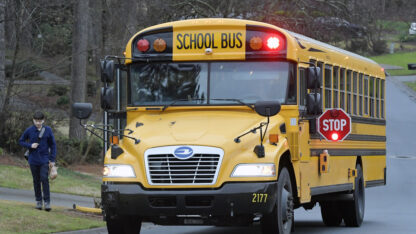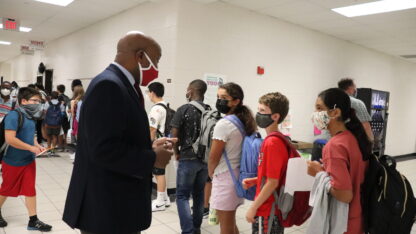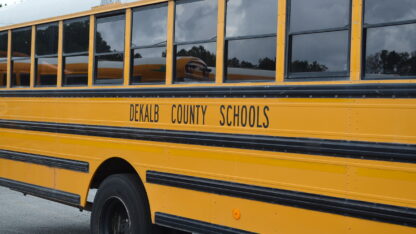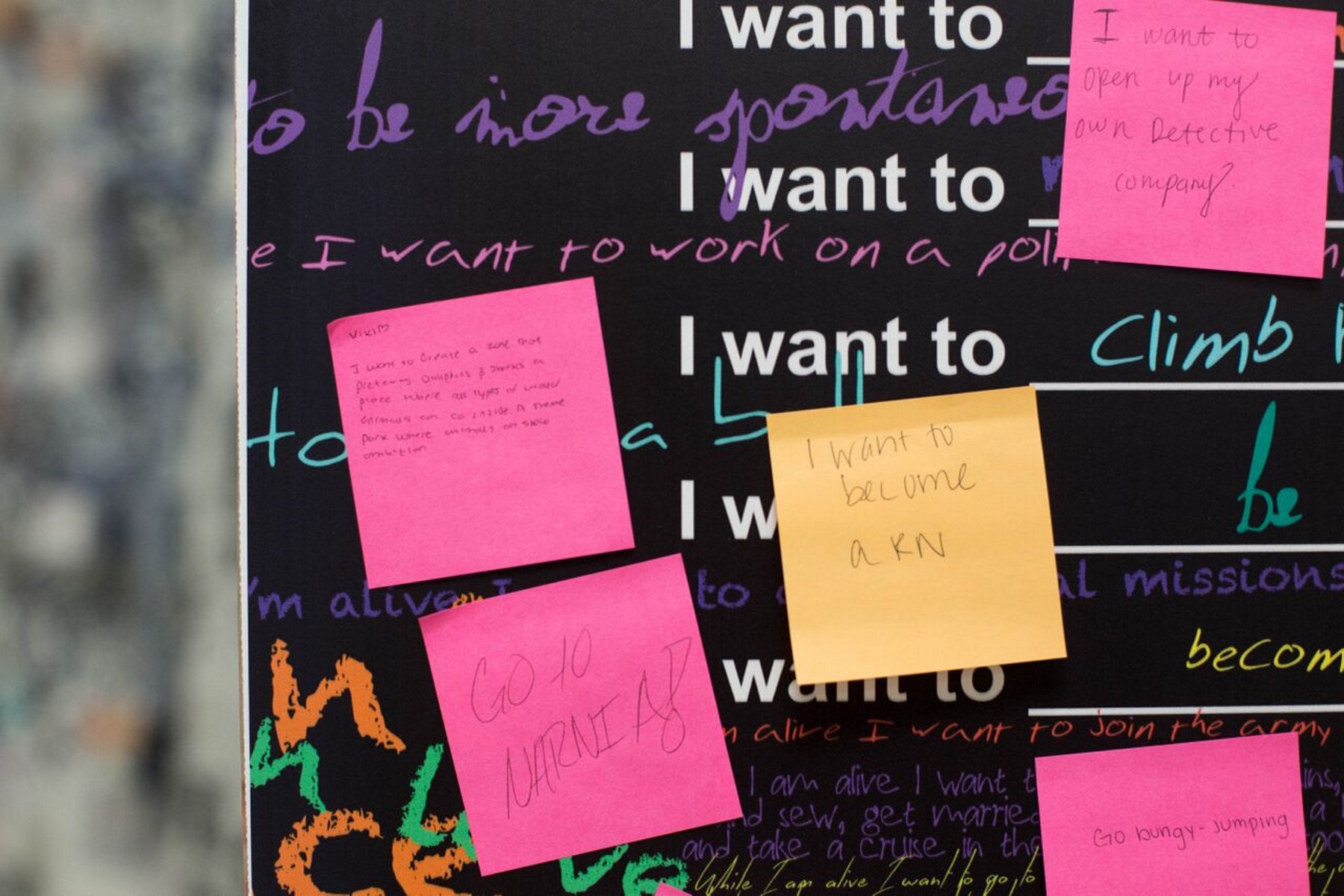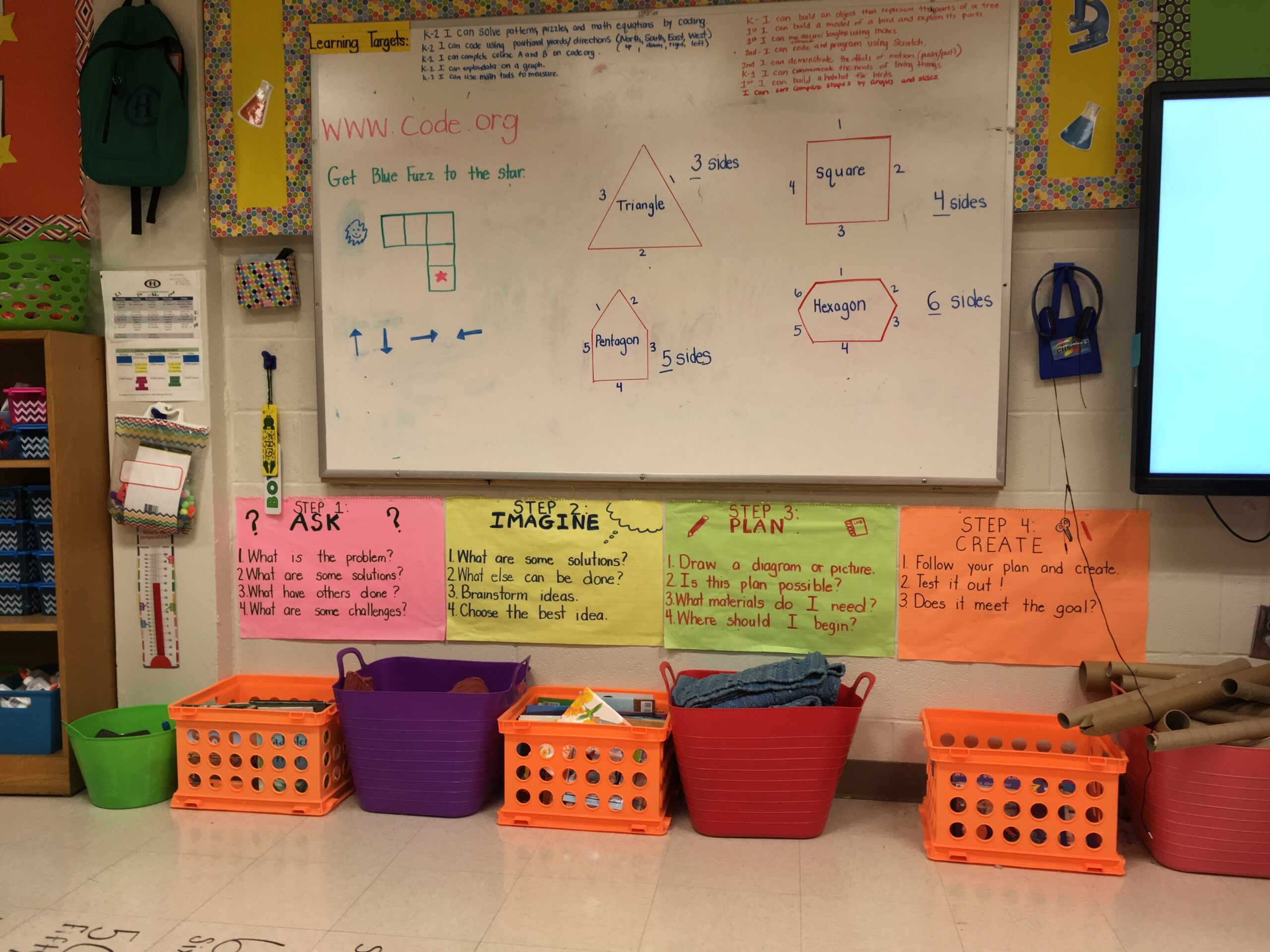Being a teacher can be tough. The job can be especially difficult if a high percentage of students are “mobile” or “transient.” That kind of student churn tends to be more common in poor areas.
Research shows high student mobility can disrupt learning. It can also make it tough to understand how well a school is doing.
An Ambitious Plan
Two years ago, Atlanta Public Schools rolled out a massive “school turnaround” plan. It’s aimed at improving underperforming schools, but it also includes plenty of “wraparound services” families can access outside of school.
APS first targeted Thomasville Heights Elementary School in southeast Atlanta. It serves students in one of the state’s poorest neighborhoods. Three years ago, it was the lowest-performing school in Georgia.
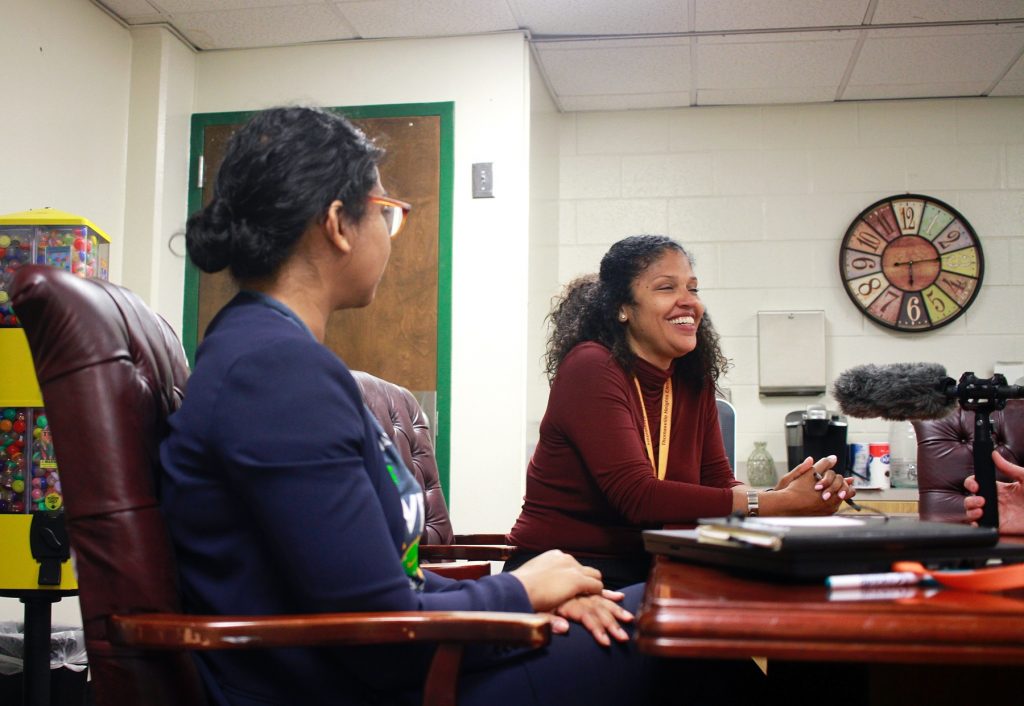
Through a contract with a nonprofit called Purpose Built Schools Atlanta, APS made a lot of changes at Thomasville. Teachers had to reapply for their jobs. Kids and their families received all kinds of services: extra tutoring, free after-school care, mental health services and counselors.
A 2017 report showed after the first year of the partnership, math and social studies scores improved at Thomasville. English/language arts and science scores were flat.
Intiasar Ziyad has been Thomasville’s media specialist for seven years. She’s one of the few teachers who stayed at the school through the staffing transition. She says the school struggled to keep teachers.
“We just didn’t have a lot of support, community support, and our staff was very low,” Ziyad says.
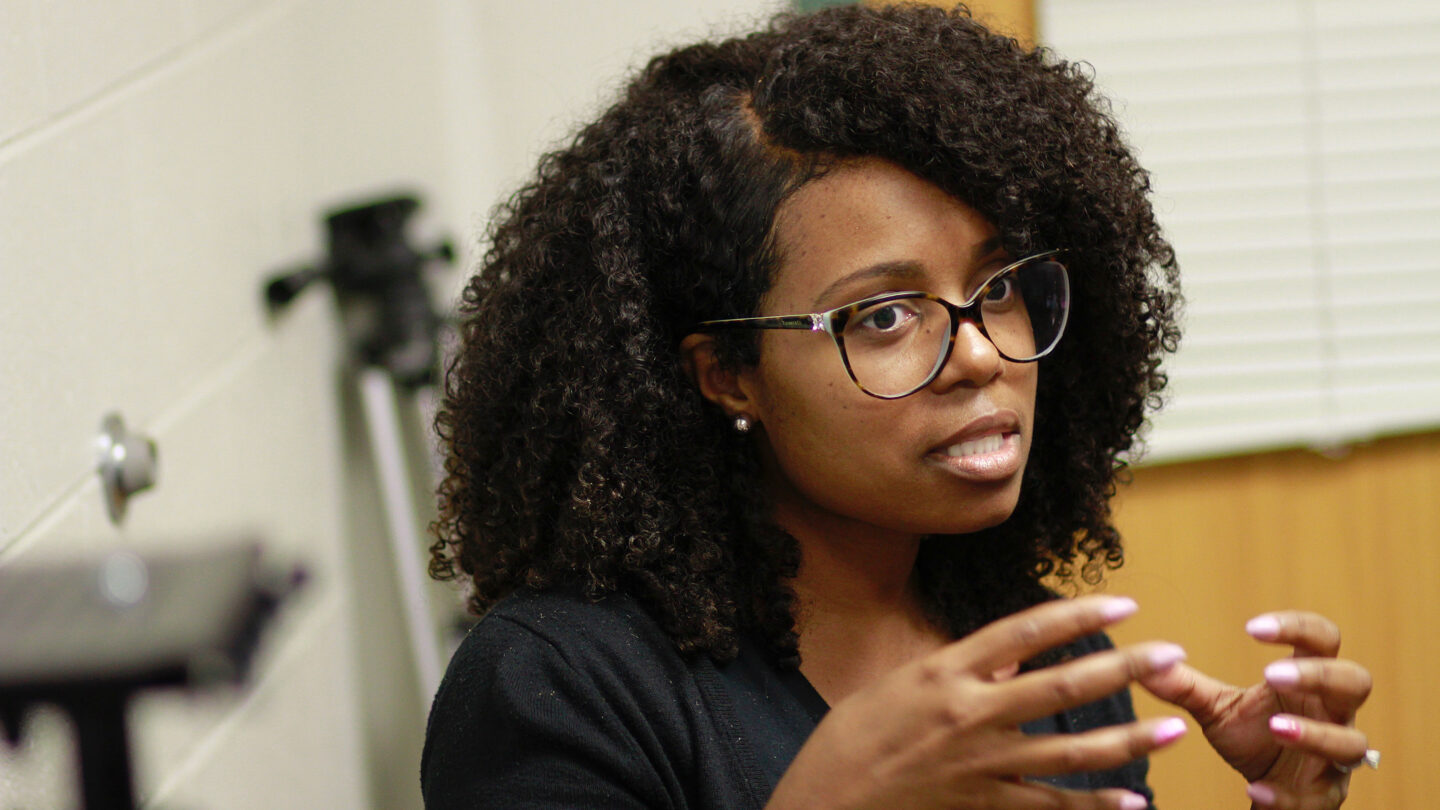
Thomasville also struggled to keep families in the neighborhood. The school had a student mobility rate of 43 percent, meaning almost half of the students were coming in and out throughout the year. Ziyad says that kind of turnover can interrupt the learning process.
“It’s important for them to kind of start with us and grow with us,” Ziyad says. “That’s how we feel like we get the most impact.”
Nicole Evans Jones is Thomasville’s principal. She says it’s easy for a child caught in the “churn” to fall behind academically.
“That kid really struggles because as soon as we start addressing gaps or deficits they’ve moved on,” Jones says.
Jones says some kids move before teachers are able to try to help them catch up.
“Let’s say if you are trying to just do some diagnostic testing,” she says. “By the time you get that test back, those kids are gone.”
Beyond The Classroom
APS Superintendent Meria Carstarphen knows mobility is a problem that impedes progress at some schools. She also knows to make neighborhoods — and thereby schools — less mobile, the district would need to offer services families don’t currently have.
“We want them to have a stable home life, which helps us have a stable school life,” Carstarphen says.
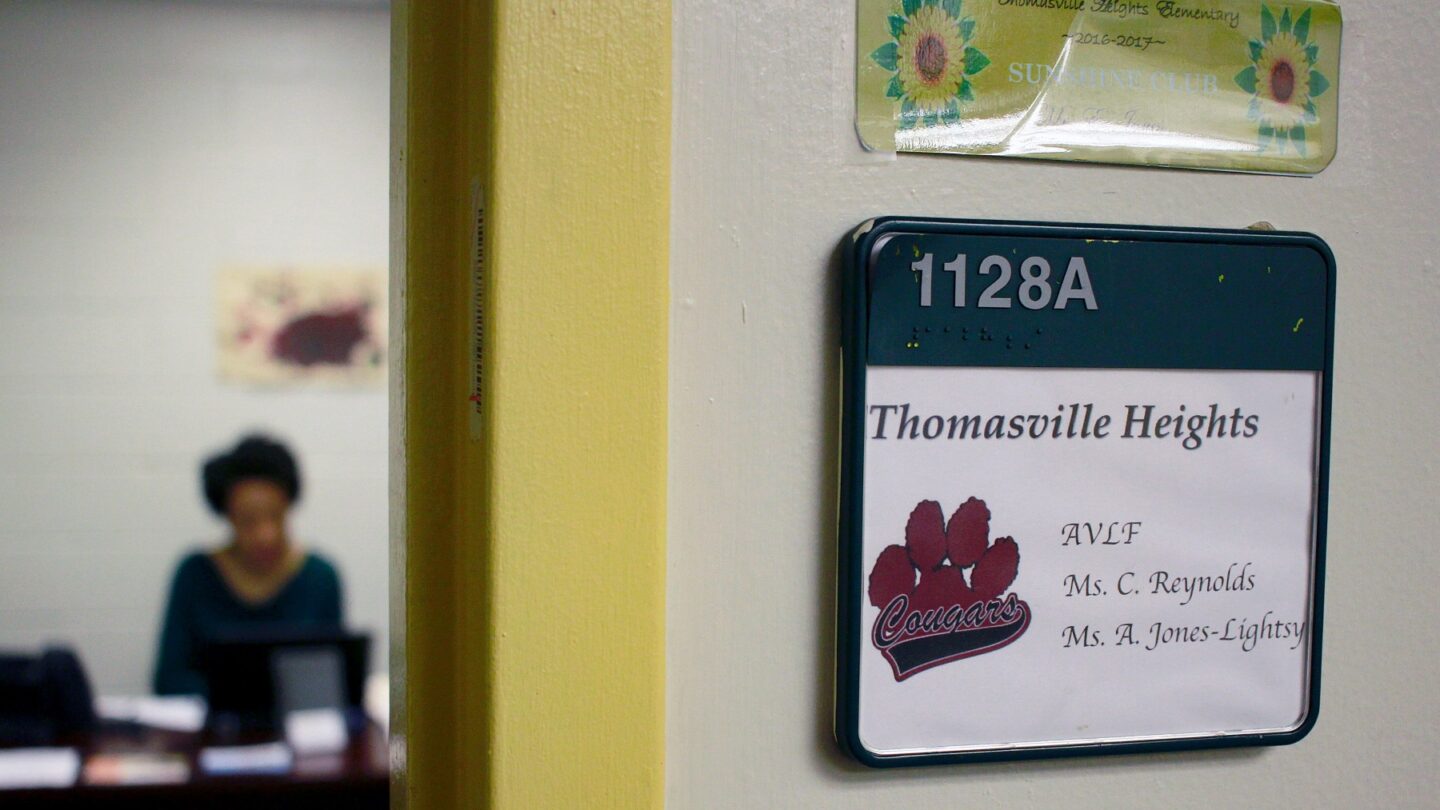
That means making sure they feel safe and secure at home, she says. Purpose Built Schools Atlanta brought free legal services to Thomasville through the Atlanta Volunteer Lawyers Foundation.
“Primarily, we focus on housing challenges, whether it be repairs and conditions or, you know, an issue with the landlord that maybe we can assist with,” says Christal Reynolds, a community advocate with the AVLF. The group often serves as a liaison between parents and landlords. Lawyers with the organization also help tenants fight eviction orders.
Reynolds says 95 percent of Thomasville families live in the Forest Cove apartment complex across the street from the school. The buildings there show obvious signs of decay. Windows are boarded up. Sidewalks are crumbling. Door frames are coming apart. Reynolds walks through and checks in with residents. They wave to her and stop to talk.
One of the tenants, Erica Lawrence, gives Reynolds an update on some of the maintenance problems she’s having.
“My oven was out for a whole year,” Lawrence says. “They came and fixed it for two months, and it went back out again.”
Problems like these have historically caused families to want to move. But Reynolds has helped tenants here form an advocacy group to fight for changes instead. It’s all part of APS’s larger plan to urge families to stay in the neighborhood so their kids can have consistency at school.
If they have to move, APS hopes they’ll keep their kids at Thomasville. That’s what Kimberly Dukes did.

She moved to a completely different neighborhood this year. She’s more than 20 minutes away. But she makes the daily trek back to Thomasville so five of her kids can still attend.
“Sometimes my kids have challenges, but I know the model is working, so I get up and make the trip every day,” Dukes says.
By the “model,” she means academics.
Thomasville Heights Elementary now has robotics teams, Saturday school and literacy and math labs, where kids can get extra help. In addition, the student mobility rate fell to 25 percent last year.
The district wants that number to shrink even more. To do that, they’re trying to make what used to be Georgia’s worst-performing school into a place families don’t want to leave.
Here are the links to Parts II and III of this series.
A note of disclosure: The Atlanta Board of Education holds WABE’s broadcast license.
This series is part of an NPR education reporting fellowship.

